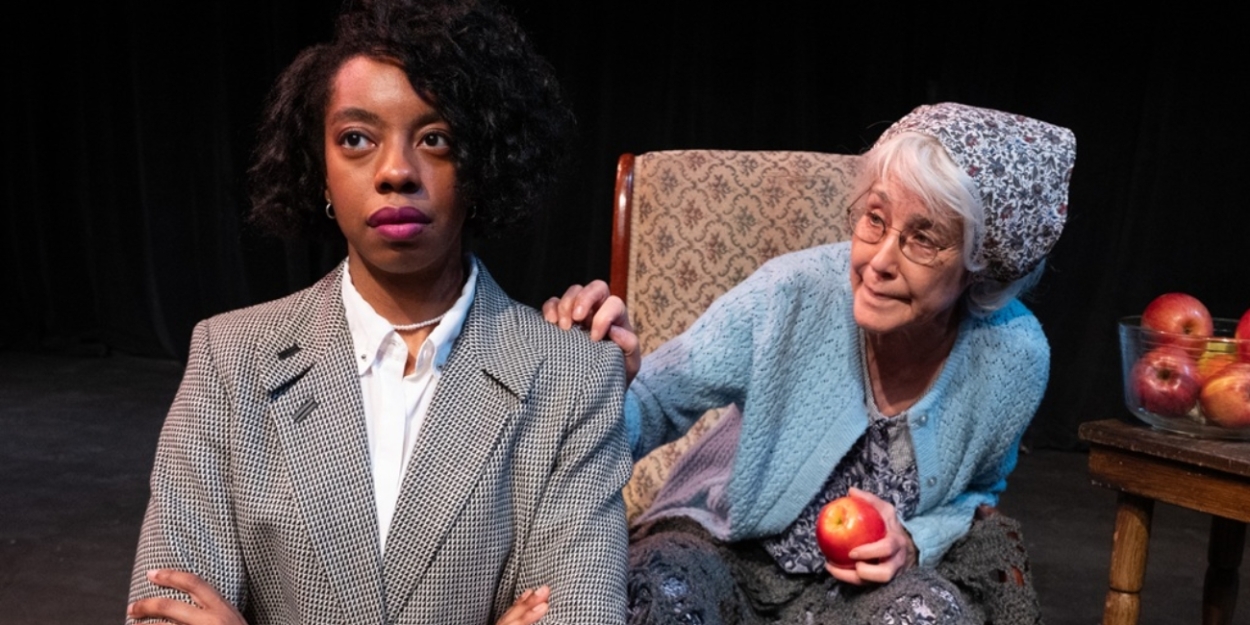When life nears its end, the most profound gift we can offer is presence. Tom Ziegler’s GRACE AND GLORIE frames that truth in the story of two women – one dying, one searching – whose encounter becomes a meditation on mortality, resilience, and the healing power of bearing witness.
Grace Stiles is 90, dying of cancer, and alone. She has outlived her husband and five sons and has checked herself out of the hospital to die on her own terms in her cottage in the Blue Ridge Mountains. With the demeanor of the region’s rugged individualism, she insists that she needs no help to die and even less to live. Into her solitude walks Gloria Whitmore, a transplant from the corporate world of New York who is serving as a hospice volunteer. That’s when a duel of wits and determination begins.
The play’s plotline has all the hallmarks of a feel-good television drama. In fact, first staged in 1991 at the Humana Festival of New American Plays, and later featuring Estelle Parsons and Lucie Arnaz Off-Broadway, it proved its staying power when it was adapted into a 1998 Hallmark Hall of Fame film starring Gena Rowlands and Diane Lane.
The emotional terrain is fertile, but in Black Theatre Troupe’s 56th-season opener, directed by Chanel Bragg, the production comes close but not quite far enough to capture the fullness and weight that popularized the work.
For someone near death, Grace comes across as surprisingly spunky. While that energy sometimes works for laughs, the role also carries a deeper texture: ornery humor edged with pain, resilience shadowed by regret. Cocooned in her bed, she holds court – philosophizing, reminiscing, and baiting the newcomer whose manners seem foreign. Shari Watts delivers a solid performance, embodying Grace’s defiance and fragility as if her history is etched in her bones.
Opposite Grace is Glorie, who carries her own burdens of loss and self-doubt. However, here, Ryan Jenkins’s portrayal feels less clearly drawn. While she conveys flashes of urgency and vulnerability, the performance is uneven, with movements and gestures that are often awkward, mechanical, and exaggerated. Glorie’s journey should unfold as a gradual shedding of defenses, but in this staging, the process feels rushed and unconvincing. As a result, her relationship with Grace never fully takes hold. The chemistry flickers, occasionally sparking warmth, although many moments meant to heighten the dramatic tension feel imposed rather than discovered.
Still, the heart of GRACE AND GLORIE beats through. More than a play about dying, it is about the act of bearing witness to another person’s fears, regrets, and dignity. In its strongest moments, the production reminds us that at the end of life, presence – the willingness to sit with another in their final season – is the greatest gift we can offer.
GRACE AND GLORIE runs through September 21st at the Helen K. Mason Performing Arts Center in Phoenix.
Photo credit to Laura Durant: L to R – Ryan Jenkins, Shari Watts
Black Theatre Troupe — blacktheatretroupe.org — 602-258-8128
Venue: Helen K. Mason Performing Arts Center, 1333 E. Washington Street, Phoenix, AZ
Reader Reviews
To post a comment, you must register and login.
